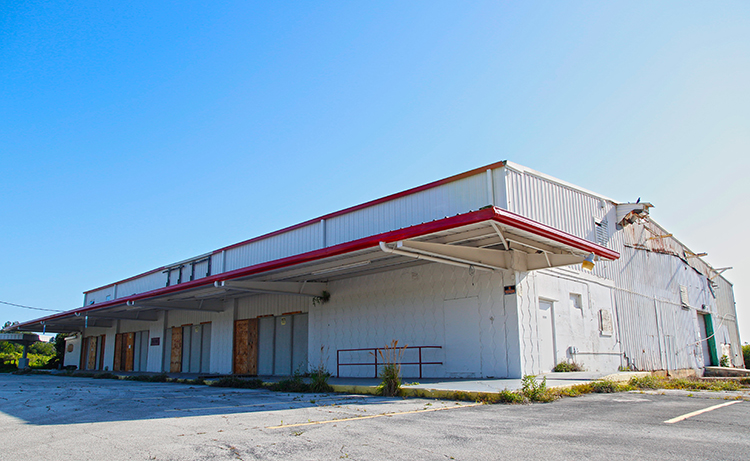
A longtime Indian River County landmark is gone. The former Hale Groves citrus store and warehouse, which closed in 2017 and languished, shuttered and forlorn, on U.S. 1 in Wabasso for years, has been demolished and hauled away.
The flat, 3.56-acre, roadside lot on which it stood is now for sale, zoned Commercial General and listed for $930,000 by the Hale family’s longtime broker Terry Torres, president and CEO of SLC Commercial Bird Realty Group.
Long a familiar icon of the world-renowned Indian River citrus industry and a popular, bustling retail and packing operation, the 25,500-square-foot building, which began as the Hale family fruit stand in 1947, succumbed four years ago to changes in the citrus and retail industries.
With windows boarded up and roadside sign faded and drooping, it became an emblem of the decline of the citrus industry here. The Hale citrus business itself is no longer in the Hale family, and the current owners said they simply could not “justify a permanent retail presence” any longer. Instead, the company has shifted primarily to online sales at halegroves.com.
After the Wabasso operation closed, the property and cavernous old packing house were put on the market. Despite its shabby appearance, the building’s bones were solid, according to Torres – the floor was concrete and the framework was mostly steel.
Buyers made offers, but nothing the sellers were willing to accept, and the decision was made to offer the property for lease instead of sale at $127,500 per year.
Again, there were lots of nibbles but, ultimately, no bites, and so the roadside parcel was put back on the market, minus the building.
Torres says “grocery stores, pharmacies and fast food restaurants” are businesses that might consider the site.
In addition to the Hale Groves property, Torres has another 23 adjacent acres listed for sale for $3 million. That land, north and west of the former packing house site, includes a waterfront section on the Indian River Lagoon. Zoned multifamily residential, the land could accommodate up to 140 units – which, if planned or built, would make the commercial property more attractive to retail outlets.
After Steve Hale mustered out of the Navy at the end of World War II, he and his wife Polly Hale opened a little roadside fruit stand along the highway south of Sebastian. They hoped to share the fresh, tree-ripened fruit grown in nearby groves with as many people as possible, but probably never imagined how successful their business would eventually become – or foresee the changes in the citrus industry that eventually would doom their roadside store.



